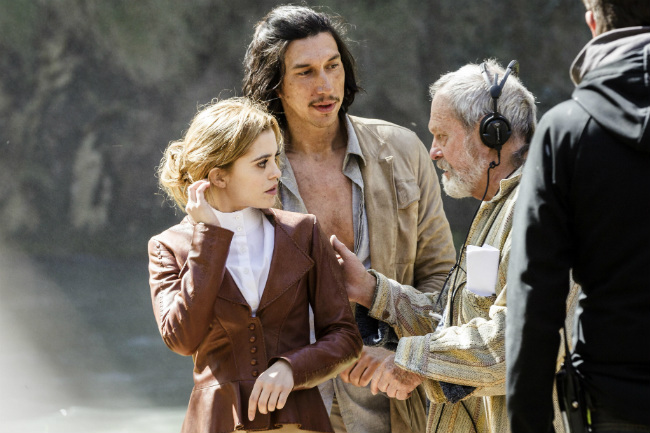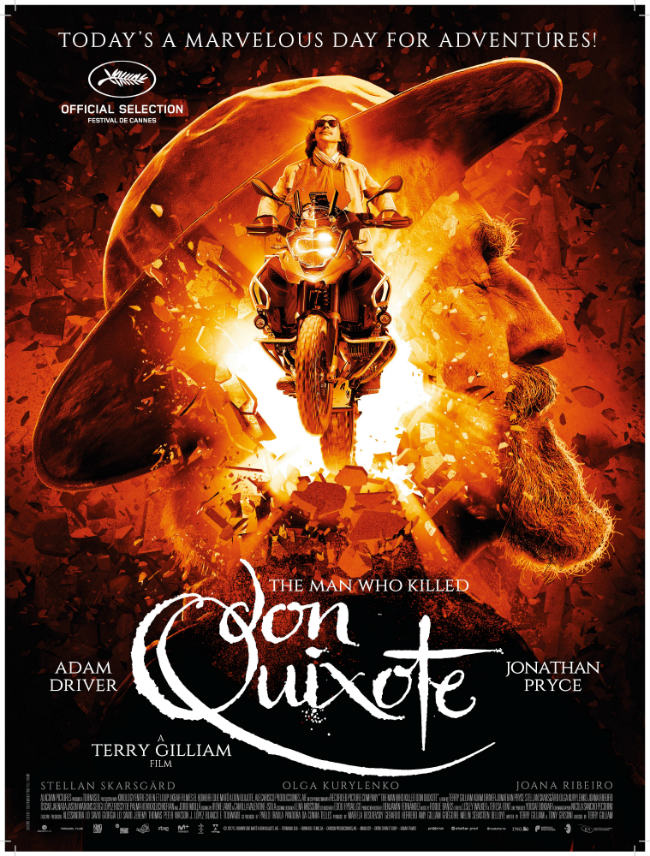“Cursed” Don Quixote Film Closes Cannes
- SUBSCRIBE
- ALREADY SUBSCRIBED?
BECOME A BONJOUR PARIS MEMBER
Gain full access to our collection of over 5,000 articles and bring the City of Light into your life. Just 60 USD per year.
Find out why you should become a member here.
Sign in
Fill in your credentials below.
The Man Who Killed Don Quixote has been in the making for a staggering 20-plus years.
Director (and former Monty Python member) Terry Gilliam has been trying to get this film made for decades. And it finally saw the light of day when it was the official “closing” film for the 71st Cannes Film Festival.
It’s been an uphill battle – worthy of a Holy Grail battle scene (though, one without invisible horses). The trials and tribulations involved in creating Gilliam’s moving picture magnum opus were even chronicled in the 2002 documentary, Lost in La Mancha.
Some films do take decades from inception to the silver screen, but Gilliam’s film is also interesting because the film is said to be “cursed.” Plagued with on-set injuries, funding lost, stars dropping out (Johnny Depp, Ewan McGregor, and more), and legal battles over the film rights, have made this movie one of the most bizarre and long-winded production efforts in the history of cinema.
Adam Driver, who had his second premiere at Cannes this year with this film (his first with Spike Lee’s BlacKkKlansman) plays Toby, a one-time starry-eyed filmmaker whose spirit has been dampened by life, work, and circumstance. When he meets a man who believes himself to be Don Quixote, adventure ensues.

“The Man Who Killed Don Quixote.” Credit: Diego Lopez Calvin
As reported by Indiewire, Driver said of the film’s supposed “curse”: “I didn’t think, ‘Oh, this had a problem before, so it’s going to continue to have a problem,’ he said. ‘You hope it’ll get made like any movie. A lot of movies you do that fall apart for various reasons, not because they’re cursed.’”
Curses or not, the movie was a long time in the making, and to have it in the can, and projecting onto the screen, must be a mighty good feeling for Gilliam. The film is one that’s likely to entertain the crowds who flock to theaters in summer en masse, for a couple of air-conditioned hours of respite, and some flight of fancy fun.
Critics at Variety called the film “a loud, belligerent, barely coherent mess.” (I hope, for his sake, Gilliam takes a cue from Robert De Niro, who has been quoted as saying he never reads his reviews.)

“The Man Who Killed Don Quixote.” Credit: Cannes Press Office
As Theodore Roosevelt famously said: “It is not the critic who counts; not the man who points out how the strong man stumbles, or where the doer of deeds could have done them better. The credit belongs to the man who is actually in the arena… if he fails, at least he fails while daring greatly…”
I’m not the best critic; I don’t like to be particularly critical, and I believe there’s value that can be found in almost any film – no matter how silly, corny, or poorly acted – and that’s what I search for: Where’s the value? What’s the lesson? What pleasure can I – and others – get from this piece of work?
For some films, it’s simply escapism, fun, and delight. And that’s what The Man Who Killed Don Quixote gives us; that’s the value I took from it, anyhow. And it’s funny, when you search for value – in movies, in other people, and in one’s own life – it’s interesting how it seems to pop up everywhere you look.
Bonjour Paris correspondent Anne McCarthy is on location in Cannes. Read her dispatches here.
Lead photo credit : "The Man Who Killed Don Quixote." Credit: Diego Lopez Calvin
More in Cannes Film Festival 2018




